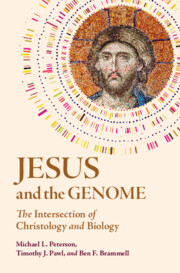4 results

Jesus and the Genome
- The Intersection of Christology and Biology
-
- Published online:
- 07 November 2024
- Print publication:
- 28 November 2024
Myth 15 - That Natural Selection Can Also Be Accurately Described As the Survival of the Fittest
-
-
- Book:
- Darwin Mythology
- Published online:
- 30 May 2024
- Print publication:
- 06 June 2024, pp 171-180
-
- Chapter
- Export citation
Chapter 10 - The Survival of the Unfit
- from Part II - Differences after Darwin
-
-
- Book:
- After Darwin
- Published online:
- 01 December 2022
- Print publication:
- 15 December 2022, pp 121-134
-
- Chapter
- Export citation
2 - Shedding Fresh Light on the History of the Butterfly Stroke
- from Part I - Sports
-
- Book:
- As If By Design
- Published online:
- 01 July 2021
- Print publication:
- 22 July 2021, pp 28-38
-
- Chapter
- Export citation

